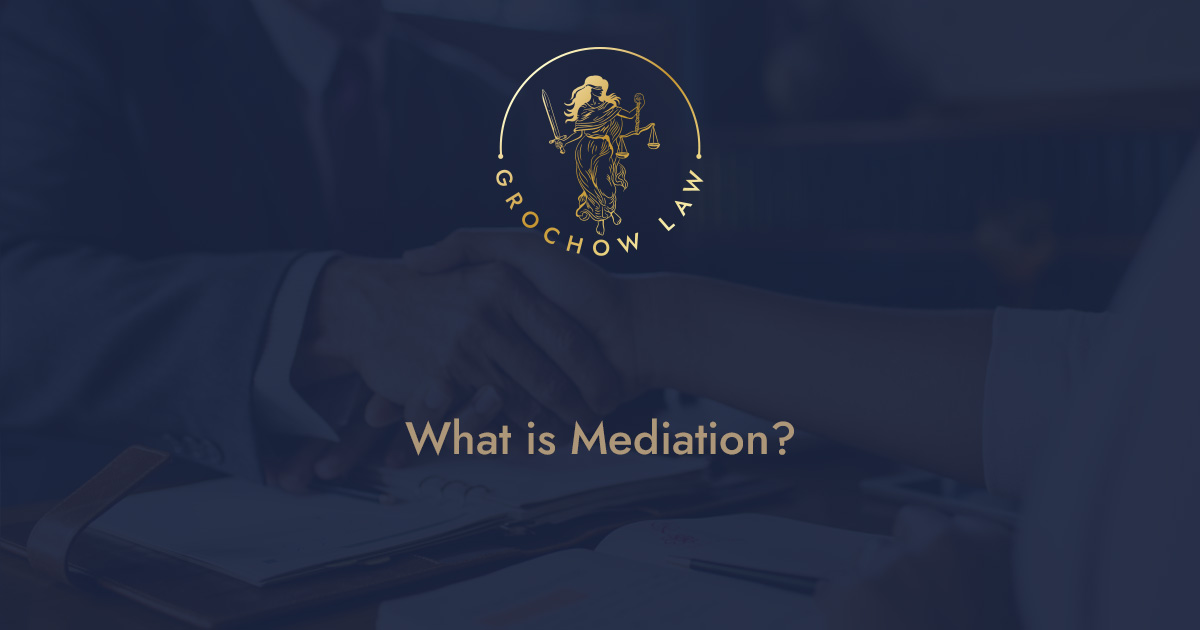Mediation is a voluntary and confidential process used to resolve workplace disputes with the assistance of a neutral third party, known as a mediator. This method is widely used in employment law to address conflicts between employers and employees or among coworkers. Mediation is often faster, less expensive, and less adversarial than going to trial. We like to think of it as a “settlement meeting.”
How Mediation Works
- Selection of a Mediator: Both parties agree on a mediator who is trained to facilitate discussions and help reach a resolution. In court-ordered mediation, the court may assign a mediator or provide a list of approved mediators for the parties to choose from.
- Initial Meeting: The mediator explains the process and establishes ground rules to ensure a respectful and constructive dialogue.
- Presentation of Issues: Each party has the opportunity to share their perspective, concerns, and desired outcomes.
- Facilitated Discussion: The mediator encourages open communication and may suggest potential solutions or compromises.
- Agreement: If the parties reach a resolution, it is documented in a written agreement that is usually binding.
Benefits of Mediation
- Cost-Effective: Mediation is generally much less expensive than trial, saving both parties significant time and money.
- Confidential: Unlike court proceedings, which are public, mediation discussions remain private and confidential.
- Preserves Relationships: By fostering collaboration and understanding, mediation can help maintain or restore workplace relationships. For example, if you remain employed with the employer, mediation can help preserve your employment.
- Flexibility: Parties can tailor solutions to meet their specific needs, which may not be possible in a court ruling.
- Control: Unlike trial, where a judge or jury decides the outcome, mediation allows the parties to control the resolution.
- Timeliness: Mediation often resolves disputes much faster than going to trial, ensuring both parties can quickly move on and put the issue behind them.
When to Consider Mediation
Mediation is particularly useful when:
- Both parties are open to resolving the dispute with some type of settlement.
- The dispute involves sensitive or personal issues that parties wish to keep confidential.
- There is an ongoing relationship, such as between an employee and employer, that both parties want to preserve.
What to Expect During Mediation
The mediation process is informal yet structured to ensure productive discussions. The mediator does not impose a solution but guides the parties toward a mutually agreeable resolution. Each side should come prepared to discuss their concerns, listen to the other party, and explore potential compromises.
How We Can Help
Our firm specializes in assisting employees through the mediation process. We’ve successfully navigated many mediations resulting in favorable outcomes for our clients. This is just one of many tools we use in resolving cases and getting employees the justice they deserve. We can help you:
- Assess whether mediation is the right option for your situation.
- Prepare for the mediation by identifying key issues and gathering evidence.
- Advocate for your interests during the mediation sessions.
- Ensure that any agreement reached is fair, enforceable, and protects your rights.
- Navigate court-ordered mediation effectively and comply with judicial requirements.
Contact us to learn more about how mediation can help resolve your workplace dispute and how we can support you throughout the process.

